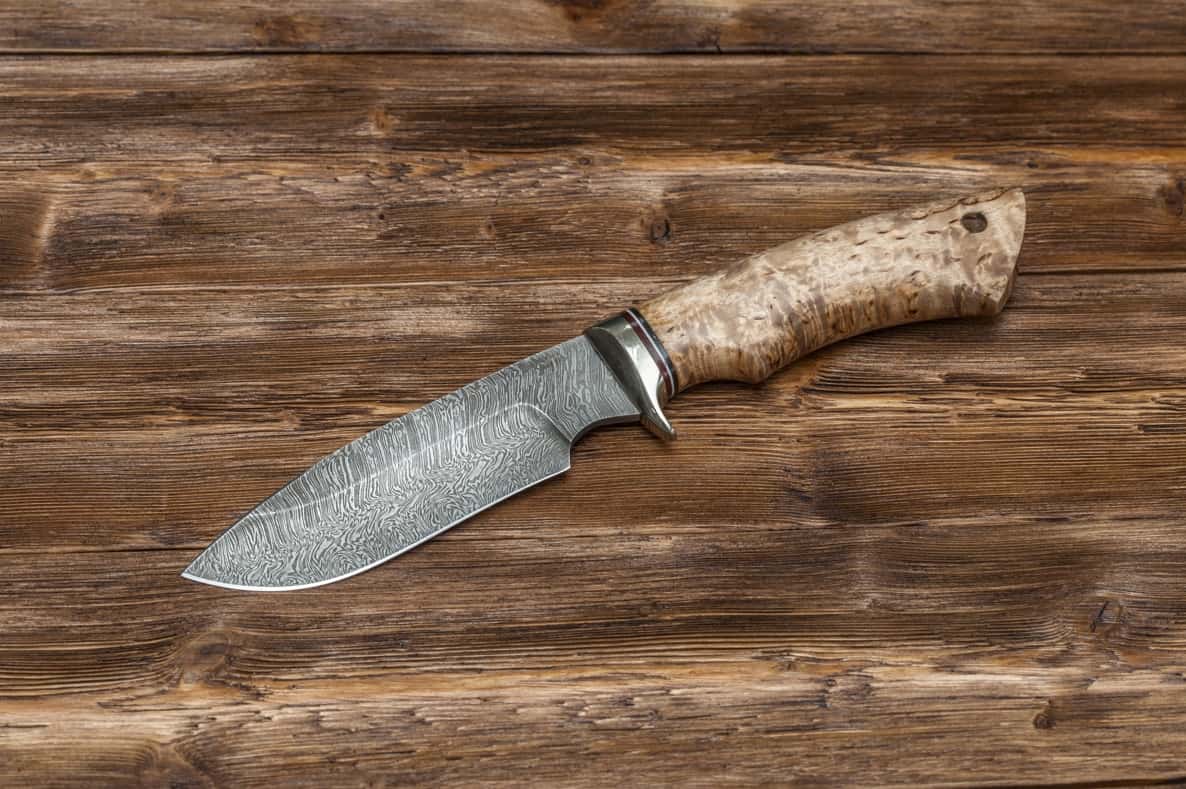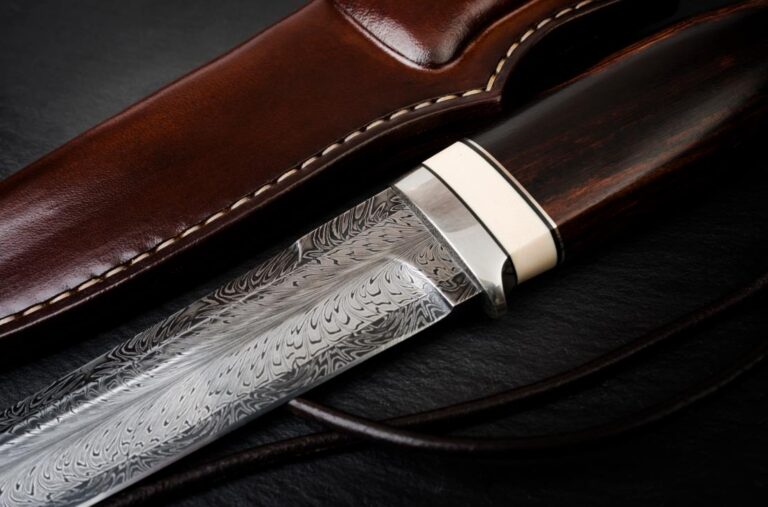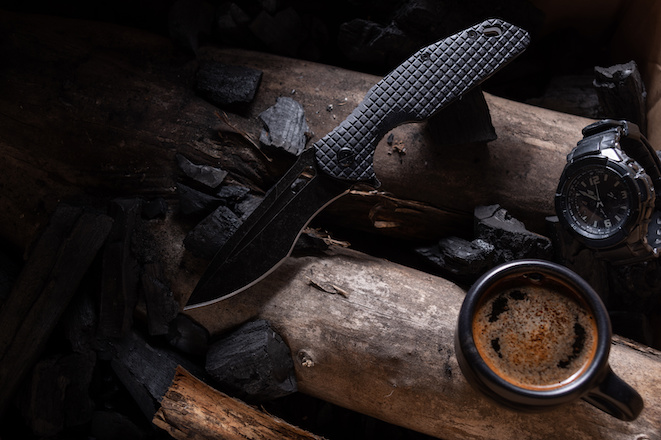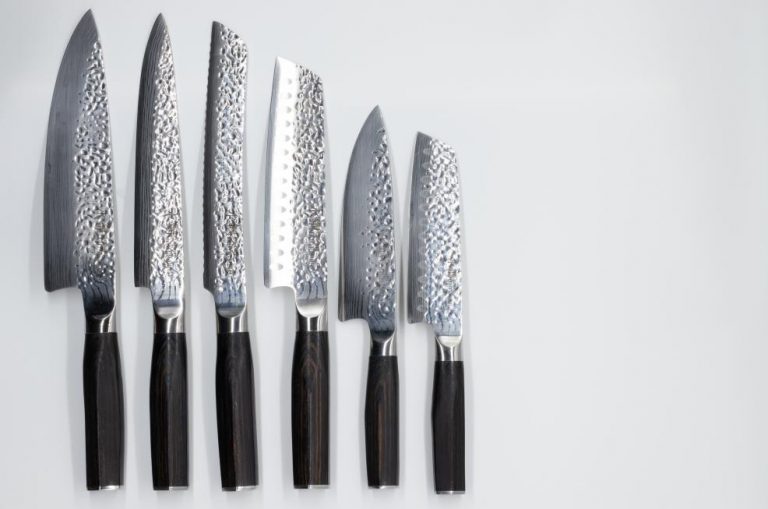Damasteel and Damascus steel are two very similar names that might confuse many people. Damasteel is a brand of steel with a Damascus pattern made by a Swedish company. “Damasteel” is both the company name and the type of steel they make. On the other hand, Damascus steel is a term used broadly for a variety of steel types known for their wavy patterns.
While all Damasteel products have Damascus patterns and are a type of Damascus steel, not all Damascus steel is made by this one company. It’s like the relationship between CPM steels made by Crucible Industries using powder metallurgy and the broader category of powder metallurgy steels. Just as all CPM steels are powder metallurgy products, not all powder metallurgy steels are CPM steels. Similarly, while Damasteel items are Damascus steels, there are many other Damascus steel options. On top of this, Damascus steel by other manufacturers are made using pattern welding technique.
What is Damascus steel?
Understanding Damascus steel can be tricky. At first glance, it’s simply steel with unique, recognizable patterns.
Historically, the distinctive pattern of Damascus steel dates back hundreds of years. Initially, it was made by forging steel with impurities to create the pattern. Nowadays, the Damascus steel we encounter is called pattern welded steel. It combines high-carbon and stainless steel with varying chemical compositions.
There’s a common myth that the ancient art of making Damascus steel was lost. But several metallurgists, including this one on Reddit, have debunked this. It is indeed technically feasible to replicate ancient Damascus steel. But the preference today leans toward pattern welded Damascus steel for its desirable qualities.
Buy Wholesale Knives and Start Scaling up with Us Today
Contact us and connect with a sales rep to get a free quote.
Pattern-welded steel
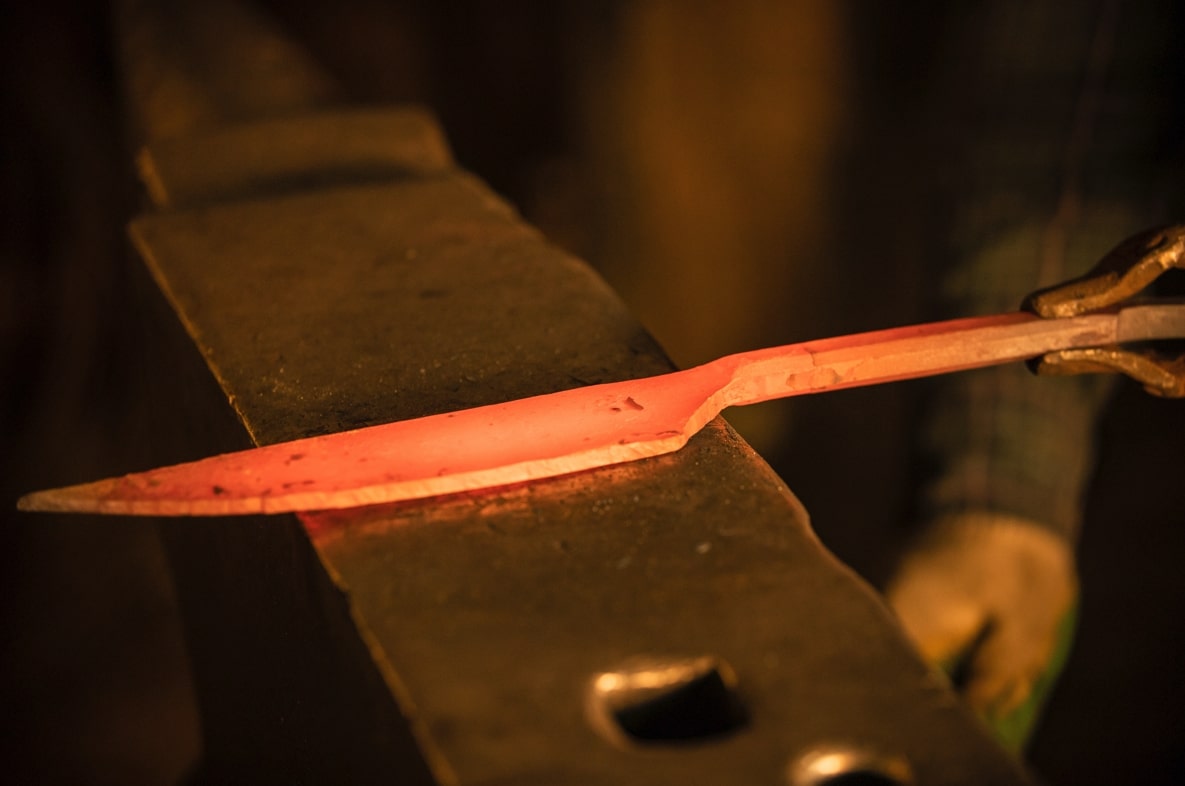
Creating pattern-welded Damascus steel involves a method of layering and folding different steel types. Then followed by forging them together. This process requires meticulous hand forging. Blacksmiths stack and hammer steel billets repeatedly, folding and heating the steel in a continuous cycle. This labor-intensive process is repeated many times. The forgining process making the production of Damascus steel costly and resulting in expensive end products.
In comparison to ancient Damascus steel, pattern-welded Damascus steel offers superior performance. As a knife steel, they provide better hardness, toughness, and rust resistance.
What is Damasteel?
Damasteel is a steel company that manufactures its own version of Damascus steel. Their Damascus steel is often crafted from stainless steel, making it softer compared to pattern-welded Damascus steel.
It’s important to note that Damasteel isn’t just a type of steel; they employ powder metallurgy methods similar to those used by Crucible Industries. This contributes to the higher cost of their steel compared to pattern-welded varieties.
In terms of performance, Damasteel is comparable to other powder metallurgy steels. Many enthusiasts nothing their flagship steel, RWL-34, similar to 154CM. However, it’s not as high-performing as premium steels like ZDP-189.
Damasteel vs Damascus steel
Damascus steel is renowned for its strength, durability, and distinctive patterned designs, originating from a centuries-old steel forging technique. This traditional steel is characterized by its wavy or mottled light and dark pattern, reminiscent of flowing water.
In contrast, Damasteel refers to both the name of a company based in Sweden and the product they create, which is damascus patterned steel. Damasteel uses modern technology to produce steels combining the classic beauty of damascus patterns.
Comparing the performance between Damasteel and Damascus steel is pointless. As both of them covers a wide range of steel.
| Damasteel | Damascus steel | |
| What is it | A trademarked company | A general type of steel |
| Production | Produced using Powder Metallurgy (PM) techniques | Pattern-welding |
| Stainless quality | Often stainless | Contain both high-performing carbon steel and stainless steel |
| Price | typically falls in the $500 price range | encompasses a wider price spectrum, ranging from under $100 to over $500, but generally tends to be cheaper. |
Is Damasteel a good investment?
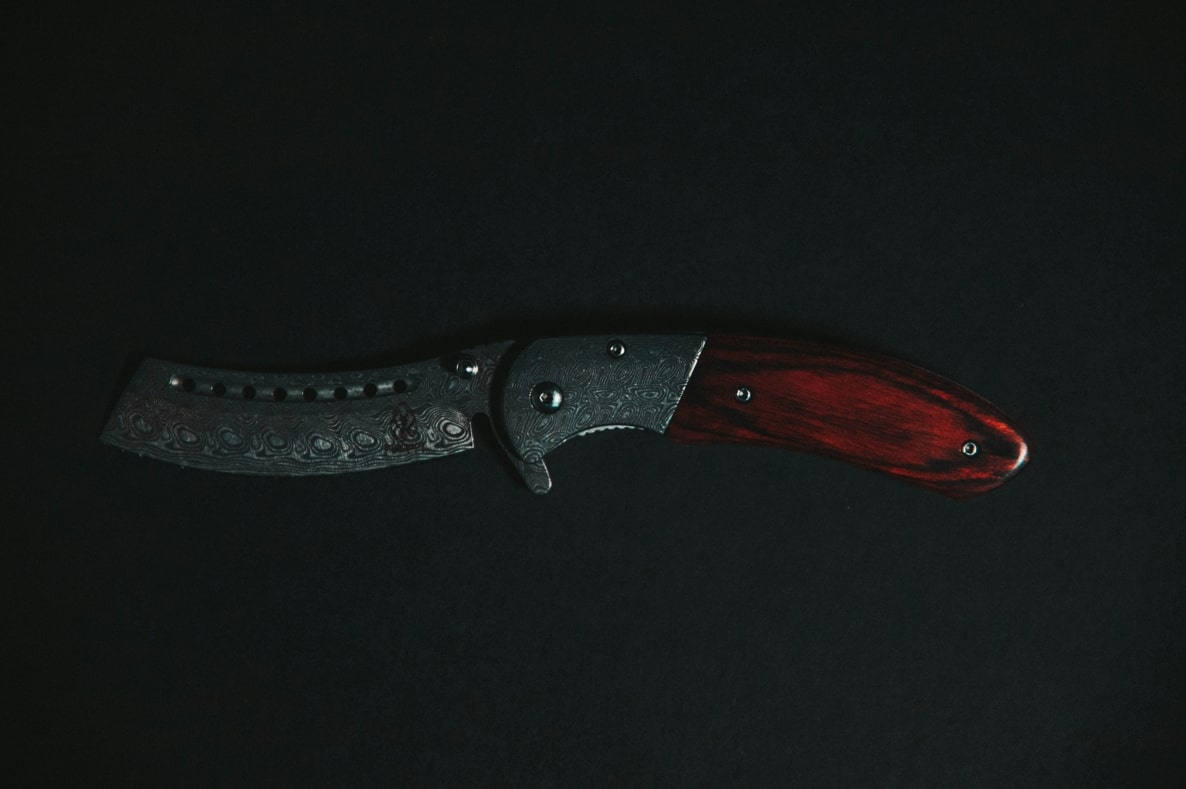
If you’re considering investing in Damasteel for manufacturing knives to kickstart your business, it’s crucial to weigh the advantages and disadvantages.
Let’s start with the positives. As we’ve mentioned, Damasteel is a type of powder steel, offering performance comparable to mid to higher-end steels like 154CM and 14C28N. It provides reliable performance that won’t disappoint. Additionally, the blade’s aesthetic appeal is a major draw. The vivid Damascus pattern is captivating and often more pronounced than patterns found in pattern-welded steel. However, some may find it lacks subtlety. Despite this, many customers actively seek out Damasteel patterns. In terms of application, Damasteel is frequently used in manufacturing flipper EDC knives.
Now, onto the challenging aspects. Damasteel comes with a hefty price tag. It’s significantly more expensive, typically ranging from $300 to $500 more, without necessarily providing substantial functional benefits beyond its appearance. As mentioned earlier, while it boasts attractive aesthetics, it may not offer cutting-edge performance to justify its high cost.
CIVIVI/WE is known for pushing Damasteel knives, but they’re also notable for persisting through failed models. The failure of Damasteel knives carries greater consequences due to their high cost. If sales are not robust, recovering from this investment setback becomes challenging. All in all, we advise against making Damasteel your primary material for knife production.
Is Damascus steel a good investment?
You’re likely familiar with Damascus steel knives, often associated with expensive ancient artifacts. Now that we’ve shed light on modern Damascus steel, let’s explore the potential of them as an investment for your business.
Pattern-welded Damascus steel is readily available, with many factories worldwide dedicated to its production. However, evaluating steel quality is crucial. Not everyone has the resources to conduct extensive testing like heat treatment or salt spray tests. To assess quality, it’s essential to inquire about the core and outer layer steel used in forging.
Manufacturers often tout the number of layers in their Damascus steel, sometimes exaggerating to over 300 layers. However, this isn’t as significant as knowing the specific steel used. Each Damascus steel variant possesses distinct characteristics, making transparency about the materials paramount.
Unfortunately, the knife industry lacks standardization in Damascus steel naming conventions, often labeling all Damascus steel without specifications. Manufacturers who withhold information about the steel used in their Damascus steel aren’t trustworthy.
However, with a reliable source and understanding of these factors, investing in Damascus steel for knife production can be a wise decision. The artistic, wavy patterns appeal to a niche audience, and collaborating with the right partners can ensure the creation of high-quality knives.
Buy Wholesale Knives and Start Scaling up with Us Today
Contact us and connect with a sales rep to get a free quote.
Making Damascus knives with LeeKnives
Manufacturing Damascus knives can be challenging, especially when aiming for quality. It’s crucial to find reliable manufacturers who offer customization options and ensure consistent quality. At LeeKnives, we specialize in providing extensive private label and OEM services. With our expertise in hand forging pattern-welded Damascus knives, we can offer valuable assistance to your business. Contact us now through the provided link to schedule a meeting and discuss how we can help you achieve your goals!
